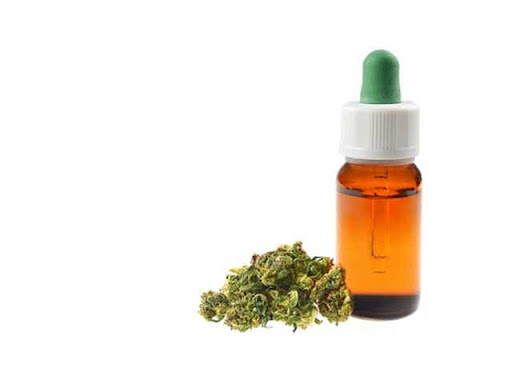In recent years, cannabidiol (CBD) has gained widespread attention for its potential therapeutic benefits. Derived from the hemp plant, CBD is a non-psychoactive compound that interacts with the body’s endocannabinoid system to potentially improve various health conditions. Among its many applications, CBD is showing promise in addressing women’s health issues, including menstrual cramps, menopause symptoms, and more. This blog post delves into how CBD can be a valuable ally for women dealing with these common yet challenging health concerns.
Understanding CBD
Before exploring its specific benefits, it’s important to understand what CBD is and how it works. CBD is one of over a hundred cannabinoids found in hemp. Unlike its more famous counterpart, THC (tetrahydrocannabinol), CBD does not produce a “high.” Instead, it interacts with the body’s endocannabinoid system—a complex network of receptors and neurotransmitters that help regulate various physiological processes, including pain, mood, and inflammation.
CBD for Menstrual Cramps
Menstrual cramps, or dysmenorrhea, are a common issue that affects many women. Characterized by painful abdominal cramping, these cramps can range from mild to debilitating and are often accompanied by other symptoms such as nausea, headaches, and fatigue. Traditional treatments include over-the-counter pain relievers like ibuprofen, but these medications can have side effects, especially with long-term use. If you want to learn more about CBD, get started today to find more information.
CBD may offer a natural alternative for managing menstrual cramps. Research suggests that CBD’s anti-inflammatory and analgesic properties can help alleviate pain and reduce inflammation. A study published in the Journal of Clinical Medicine found that CBD could be effective in reducing pain and improving overall quality of life in patients with chronic pain conditions. Although more research is needed specifically on menstrual cramps, anecdotal evidence from users suggests that CBD can help ease cramping and discomfort.
CBD can be consumed in various forms, including oils, tinctures, capsules, and topical creams. For menstrual cramps, topical application of CBD-infused creams or balms directly to the lower abdomen may provide localized relief. Additionally, CBD oil or capsules taken orally may help manage pain and inflammation from within.
CBD and Menopause
Menopause is a natural biological process marking the end of a woman’s menstrual cycles and fertility, typically occurring in the late 40s to early 50s. Along with the cessation of periods, menopause brings a range of symptoms, including hot flashes, night sweats, mood swings, and sleep disturbances. These symptoms can significantly impact a woman’s quality of life.
CBD may help mitigate some of these menopause-related symptoms. Hot flashes and night sweats are often caused by hormonal fluctuations and can be distressing. Research indicates that CBD may help balance the body’s endocannabinoid system, which plays a role in regulating temperature and mood. In a study published in Menopause, researchers observed that CBD could have potential benefits in managing menopausal symptoms, although more comprehensive studies are needed to confirm these findings.
For sleep disturbances, which are common during menopause, CBD has shown promise in improving sleep quality. A review in the Frontiers in Psychology highlighted that CBD could help manage sleep disorders by addressing factors like anxiety and pain that often disrupt sleep. By promoting relaxation and reducing anxiety, CBD may help women achieve better rest during menopause.

CBD for PMS and Mood Swings
Premenstrual Syndrome (PMS) is a condition that affects many women in the days or weeks leading up to their menstrual period. Symptoms include mood swings, irritability, fatigue, and bloating. While conventional treatments often focus on hormonal regulation and lifestyle changes, CBD offers a novel approach to managing PMS symptoms.
CBD’s impact on mood regulation is particularly relevant for PMS. The compound interacts with the endocannabinoid system, which influences mood and emotional responses. A study published in Current Neuropharmacology found that CBD has potential antidepressant and anxiolytic (anxiety-reducing) effects. For women experiencing mood swings and irritability associated with PMS, CBD might provide a calming effect and help stabilize emotions.
Other Potential Benefits of CBD for Women’s Health
Beyond menstrual cramps, menopause, and PMS, CBD may offer additional benefits for women’s health. Research suggests that CBD could play a role in managing conditions such as:
- Endometriosis: A painful condition where tissue similar to the lining of the uterus grows outside of it. CBD’s anti-inflammatory properties may help reduce pain and inflammation associated with endometriosis.
- Polycystic Ovary Syndrome (PCOS): A hormonal disorder that can cause irregular periods, acne, and excess hair growth. CBD may help manage inflammation and hormonal imbalances related to PCOS.
- Anxiety and Depression: Women are more likely to experience anxiety and depression compared to men. CBD’s potential mood-stabilizing effects can offer relief from these mental health challenges.
Safety and Considerations
While CBD shows promise for various aspects of women’s health, it’s important to approach its use with caution. The FDA has not yet approved CBD for the treatment of specific medical conditions, and more research is needed to fully understand its effects. It’s crucial to consult with a healthcare provider before starting any new supplement, especially if you’re pregnant, nursing, or taking other medications.
When choosing CBD products, look for those that are third-party tested to ensure quality and purity. Opt for reputable brands and consider starting with a lower dose to gauge how your body responds.
Conclusion
CBD holds significant potential as a natural remedy for women’s health issues, from menstrual cramps and menopause symptoms to mood swings and more. Its anti-inflammatory, analgesic, and mood-stabilizing properties make it a promising option for managing various conditions. However, as with any supplement, it’s important to approach CBD with informed caution and consult with healthcare professionals to determine the best approach for your individual needs. As research continues to explore its full range of benefits, CBD may well become a valuable tool in enhancing women’s health and well-being.
By embracing the potential of CBD, women may find new ways to manage and alleviate some of the challenges associated with their health, leading to a better quality of life and greater overall wellness.

